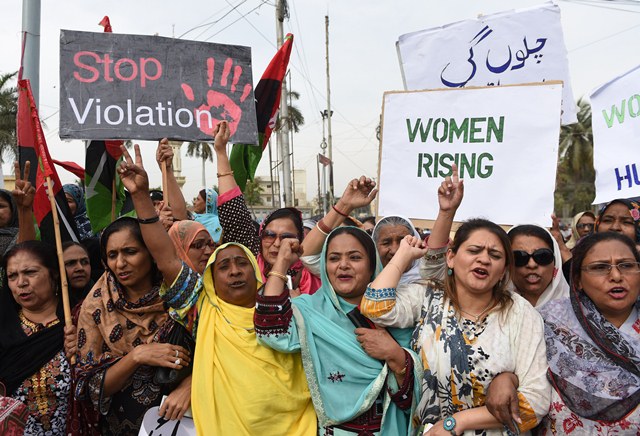- About
- Topics
- Story
- Magazine
- In-Depth
- Picks
- Opinion
- News
- Donate
- Signup for our newsletterOur Editors' Best PicksSend
Read, Debate: Engage.
| topic: | Political violence |
|---|---|
| located: | Pakistan, Afghanistan |
| editor: | Shadi Khan Saif |
At the recent UN General Assembly session, Pakistan’s Prime Minister Shahbaz Sharif took the opportunity to express apprehensions in connection with what he described as mounting threats of terrorism from neighbouring Afghanistan. In his speech, Sharif said: “Pakistan shares the key concern of the international community regarding the threat posed by the major terrorist groups operating from Afghanistan.”
Propagating the fears of terrorism on the world stage for political gain is one thing and addressing its root causes for domestic and global peace is another - Pakistan’s ruling elite knows it but seems to be indifferent to the distinction. The accusations of terrorism is just one argument in a long and complex debate about the birth, nature and exercise of religious fanaticism that results in death and destruction on a massive scale, both within Pakistan and in the neighbourhood.
What Sharif failed to mention or acknowledge was the open secret that his government openly and brazenly supported the Taliban’s rise to power in the first place and now aims to exploit the situation by playing the victim. There is absolutely no denying the colossal damages the people of Pakistan faced during the 20 years of the so-called US’ ‘war on terror,’ but in retrospect, Sharif and the powerful army of the country need to honestly evaluate their policies to address the root cases of terrorism.
To date, there are elements of domineering within the ruling circles of Pakistan, which has a soft corner for terrorists, as well as a disregard for a fair-rule based sytem of governance that respects everyone’s social liberties and other countries’ sovereignty. This has brought a culture of violence back to Pakistan that has now taken the shape of a new religion not seen in any other country with similar demographics, such as Turkey and Malaysia, or in the Gulf.
In those places, no group of individuals - let alone the state - is allowed to exploit so ruthlessly the religious sentiments of the masses for geo-strategic and political gains. The relation between the state and the masses needs a clear definition in Pakistan, where the poor and marginalised, particularly religious minorities, are systematically oppressed. The state is owned by all of the people, not the other way around.
Taking ownership of past mistakes and correcting the path now might help overcome this and stop the bloodshed in the future. Power circles in Pakistan need to rise above the politics of tactical manoeuvring for short-term political and economic gains. They need not fool themselves and the world with the blame game and must engage in genuine discussions for promoting peace and development in the region. The misadventures and geostrategic ambitions have already cost Pakistan immensely.
The country, with its massive young population, has a huge potential to serve humanity all over the world. It is, however, very sad to see the Pakistani youth being denied a promising future by their civil and military rulers who continue to nurture the evil of terrorism and not fix it, therefore allowing it to cause havoc again and again.

